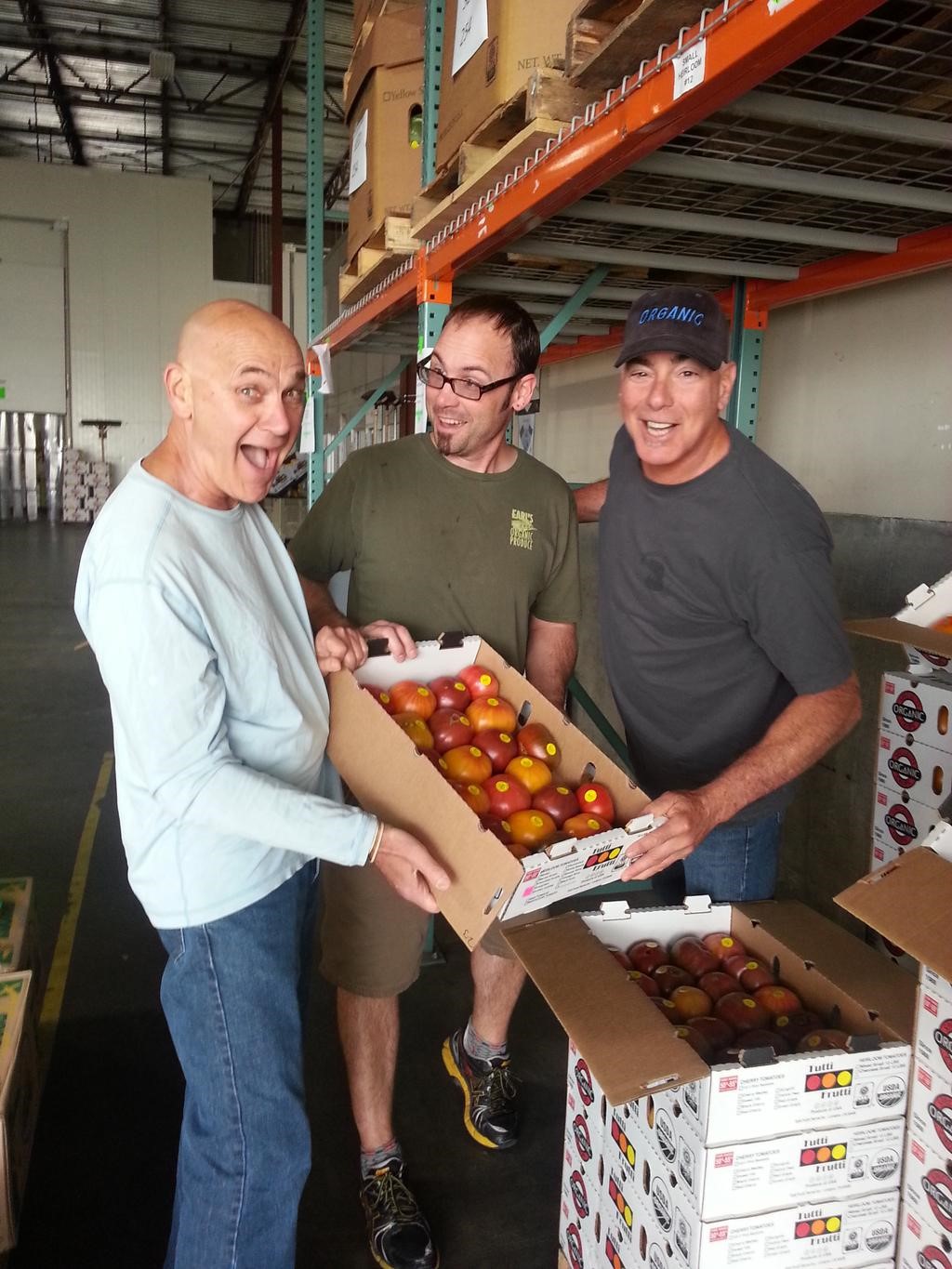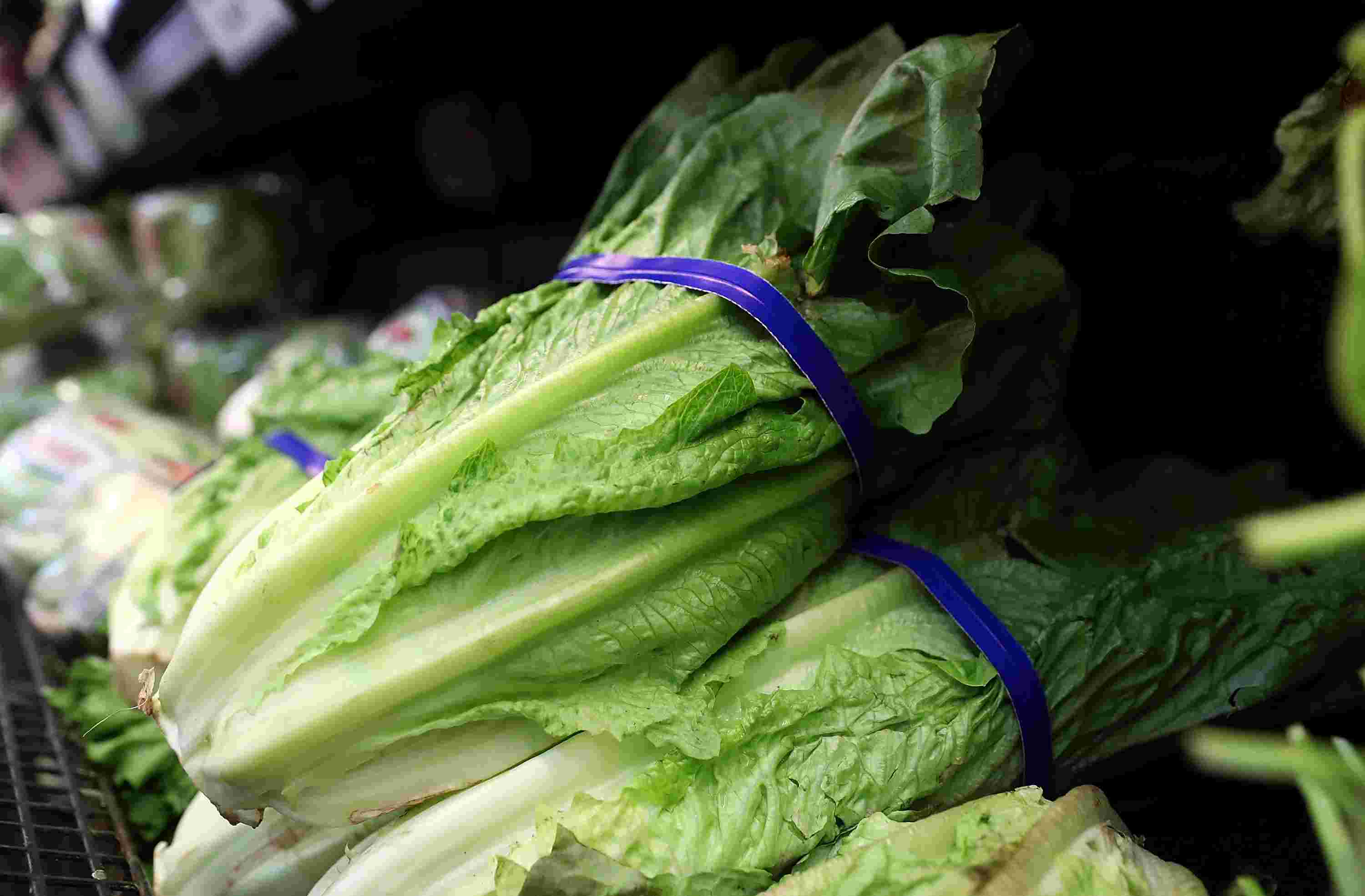The Food and Drug Administration advisory earlier this week informing consumers that it is safe to eat romaine lettuce again is another factor in a confluence of events that has pushed the prices of organic lettuce to very high levels, with little respite in sight.
Robert Lichtenberg, director of purchasing for San Francisco-based Earl’s Organic Produce told OPN that the “romaine fiasco”, combined with increased demand post-Thanksgiving holiday, a change in weather, and the normal transition in production areas has created an unsettled lettuce market, accompanied by very high prices.

Earl Herrick, Patrick Stewart, Robert Lichtenberg of Earl's Organic Produce
Even prior to the FDA’s Nov. 20 advisory against eating romaine, prices were climbing. On Tuesday, Nov. 27, Lichtenberg said the market price on organic leafy greens was around $38 with head lettuce returning $40 per carton. A look at the USDA’s National Specialty Crops Organic Summary for a day earlier noted many of the lettuces were in the $30 to $40 per carton range.
Lichtenberg reported that harvesting of organic romaine started in California’s Imperial Valley yesterday, and should be in the San Francisco market for Friday, Nov. 30 business. He said only time will tell, but anticipated that demand would not be adversely impacted by the one-week FDA-caused cessation of sales.
Further south, David Weinstein of Heath & Lejeune Inc., an organic wholesale specialist in the Los Angeles market area, noted that one significant grower shipper of organic romaine did begin harvesting again on Tuesday, but indicated that there were not many others following suit at this point.

David Weinstein
One of those grower-shippers is Cal-Organic Vegetables, based in Lamont, CA. One of the salesman in their office said a decision was made late Tuesday “to open up our fields on Wednesday and began shipping on Thursday.” He said that as demand increases the company will be able to ramp up production fairly quickly.
At retail level, all romaine – organic and conventional – will have to be labeled with its point of origin. The FDA has theorized that the e.coli outbreak originated in coastal California, where most of the romaine production originated in the month of October. Consequently, in its latest advisory, the federal agency noted that it had no reason to believe any of the “winter growing locations” were suspect in the e.coli outbreak.
After all, those areas had not begun shipping when the e.coli illnesses occurred. FDA listed production from desert areas in California and Arizona as well as winter production from Florida and Mexico as unaffected from the outbreak. It also noted that other states have smaller quantities of production and also have not been implicated. For the most part, the organic production of romaine will come from California, Arizona and Mexico. A large vegetable grower in Florida told OPN there is very little if any commercial production of organic romaine in that state.
With organic romaine back on the shelves, another question that has surfaced is who is liable for the romaine that was destroyed, as the Nov. 20 FDA advisory recommended. The Perishable Agricultural Commodities Act division of the USDA has issued guidance on this subject. The document can be found on the USDA’s Agricultural Marketing Services website (www.ams.usda.gov).

Briefly, who is liable is dependent upon the type of sale and the location of the product when the advisory was issued. If the product was still in possession of the shipper when the advisory was released that made it ‘unmerchantable”, it is the shipper that assumes the liability. If the product had already reached the buyer and had been accepted, it is the buyer’s liability. If the product was in transit, the risk depends on the type of sale. On a sale with a “delivered” price, the shipper controls the transportation and assumes the risk until the product has been accepted by the buyer. On an f.o.b. sale, the buyer assumes the risk once it has been loaded and is in transit.
These are guidelines and do not anticipate every buy/sell agreement. The PACA document advised buyers and sellers to consult an attorney or to contact the PACA for clarification (800-495-PACA).






